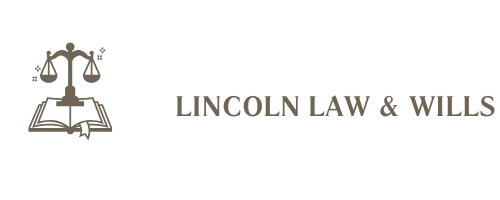Estate litigation often arises when disputes occur during the distribution of a deceased person’s estate. These conflicts can disrupt families, prolong estate administration, and significantly increase legal costs. This article explores the most common disputes in estate litigation and practical ways to resolve them efficiently. Whether you’re an executor, beneficiary, or family member, understanding these issues and their solutions can help navigate such challenges effectively.
Understanding Estate Litigation
Estate litigation lawyer Sydney refers to legal disputes that arise regarding the distribution of a deceased person’s assets. These conflicts often involve disagreements over the validity of a will, the management of estate assets, or the rights of beneficiaries. In many cases, addressing these disputes early can save time, money, and emotional strain.
A notable keyword in this area, estate litigation, encompasses diverse issues such as contested wills, unclear asset distribution, or executor misconduct. If you’re involved in such a dispute, knowing your rights and options is crucial for reaching a fair resolution.
Common Disputes in Estate Litigation
1. Contested Wills
One of the most frequent causes of estate litigation is a contested will. A will may be challenged on several grounds, including:
- Allegations of fraud or forgery
- Claims of undue influence
- Lack of testamentary capacity
For instance, if a family member believes the deceased was pressured into changing their will, they may file a lawsuit to contest its validity. Resolving such disputes typically involves presenting evidence in court to support or refute these claims.
2. Disputes Among Beneficiaries
Conflicts often arise when beneficiaries disagree over how assets should be divided. Common issues include:
- One beneficiary receiving a larger share than others
- Claims of favoritism
- Misunderstandings about the deceased’s intentions
Mediation is a useful tool in such cases, as it encourages open communication and compromise, often leading to a mutually satisfactory outcome.
3. Executor Misconduct
An executor has a fiduciary duty to manage the estate in the best interest of its beneficiaries. However, disputes can occur if:
- Executors fail to fulfill their duties
- They are accused of mismanaging estate assets
- Conflicts of interest are suspected
In such situations, beneficiaries can petition the court to remove the executor and appoint a replacement.
4. Disputes Over Asset Valuation
Determining the value of estate assets can be contentious, particularly for high-value items like property, artwork, or businesses. Disagreements may arise over:
- Whether an asset was undervalued or overvalued
- The fairness of appraisals
- Division of jointly owned property
To resolve these disputes, independent appraisals or professional mediation can be sought.
5. Claims by Family Members Excluded From the Will
If a family member is excluded from the will, they may contest it by filing a family provision claim. These claims argue that the deceased failed to provide adequately for their dependents, including:
- Children
- Spouses or de facto partners
- Financially dependent relatives
Courts often weigh factors like the claimant’s financial needs and their relationship with the deceased when deciding these cases.

6. Ambiguities in Estate Planning Documents
Poorly drafted wills or unclear estate planning documents can lead to misunderstandings. Common issues include:
- Conflicting clauses
- Ambiguous language
- Missing details about asset distribution
These disputes can often be avoided by ensuring the estate plan is clear and legally sound, drafted by an experienced attorney.
How to Resolve Estate Litigation Disputes
Resolving estate litigation requires careful planning, professional guidance, and a focus on effective communication. Here are some practical approaches:
1. Seek Mediation
Mediation is one of the most effective ways to resolve estate disputes. It allows parties to discuss their concerns in a controlled environment with the assistance of a neutral mediator. Mediation is cost-effective, confidential, and often preserves family relationships.
2. Engage Experienced Estate Litigation Lawyers
Hiring a lawyer who specializes in estate litigation ensures you have the expertise needed to navigate complex legal challenges. A skilled lawyer can help gather evidence, represent your interests in court, and negotiate settlements on your behalf.
3. Conduct Independent Appraisals
For disputes over asset valuation, independent appraisals from qualified professionals can provide an objective assessment of the asset’s worth. This often helps reduce conflict among beneficiaries.
4. Use Family Agreements
Encouraging open discussions among family members to create agreements regarding asset distribution can prevent disputes. This approach works best when overseen by an impartial third party, such as a mediator or legal advisor.
5. File a Court Petition
In cases where other methods fail, filing a court petition may be necessary. Courts have the authority to resolve disputes by:
- Validating or invalidating wills
- Removing executors
- Determining fair asset distribution
While court proceedings can be time-consuming and costly, they often provide a definitive resolution.
6. Ensure Clear Estate Planning
The best way to avoid estate litigation is through proper planning. By creating a comprehensive estate plan with the help of legal professionals, you can reduce ambiguity and provide clear instructions for your beneficiaries.

The Importance of Acting Quickly
Timing is crucial in estate litigation. Delaying action can lead to complications, including the loss of evidence or the expiration of legal deadlines. Engaging professional help early can significantly improve the chances of a favorable outcome.
Final Thoughts
Estate litigation disputes can be emotionally and financially draining, but understanding the common issues and their resolutions can ease the process. Whether it’s contesting a will, addressing executor misconduct, or resolving valuation disagreements, proactive steps like mediation, professional legal advice, and effective communication can lead to better outcomes.
If you’re involved in estate litigation, consulting an experienced lawyer is essential to protect your rights and interests. With the right support and strategies, you can navigate these challenges while preserving family harmony and ensuring a fair resolution.
See Also: The role of property lawyers in securing your investments.
